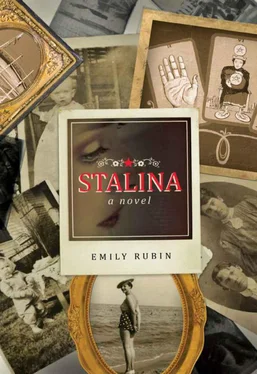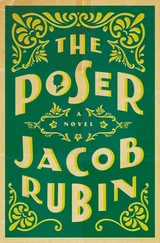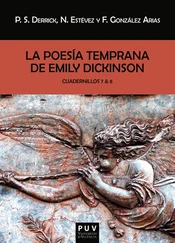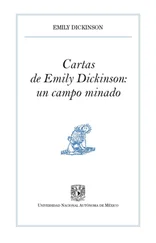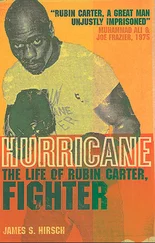“Pepe is spirited,” I told Nadia, trying to smooth over his bad behavior. He’d pull on his leash every time he’d see a pigeon on our walks, and he barked loudly at anyone in a uniform. My mother once had words with the traffic police when Pepe was in the car, and from then on, he became protective and upset whenever a uniform approached any of us. You can imagine in the Soviet Union, this made for a rather stressful existence.
In the backyard, on that afternoon, he was just having a good time, feeling like a puppy again, chasing around our circle, stretching out his front paws, ready to jump and pounce in any direction.
“Pepe, sit! Sit! Good boy,” I told him.
He could not be contained that day. When Nadia finished explaining the rules, she too sat in the circle. Pepe ran to her side, still panting over the beanbag. She twisted her body toward Pepe, confident that she had the power to control him.
“Sit, you sweet mutt,” she said. “Now lie down, lie down.”
Sitting was all Pepe could handle, but Nadia began pushing his head down toward the grass.
“Lie down.” She pushed again. “Lie—”
Her forceful hands and controlling spirit brought out something ugly in Pepe. He snapped and lunged at her. It was a motion of protection, but his sharp side teeth caught the fleshy part of her soft, pale, fourteen-year-old jaw. I watched as the blood spurted through her shaking fingers.
Amalia had heard only rumors about this story. When I finished telling her about this last part, she stopped me.
“Stalina, the story I heard was that Nadia smacked Pepe because he was misbehaving, and that you tried to bite Nadia, but Pepe got to her before you did.”
“Rumors. I wonder what they would have done to me if I did bite Nadia. She certainly deserved whatever she got.”
Amalia added, “She never wanted to play with me.”
“She was jealous that you got to wear makeup,” I assured her.
“She thought I was a horror with this mark on my face. She couldn’t stand to look at me.”
“Spoiled brat.”
“Did the bite leave a scar?”
“Plastic surgery. There was only the slightest line along her jaw.”
“What about Pepe?”
“The rest of that day was like a bad dream.” I continued the story, and Amalia made more tea.
“Nadia rolled on the ground holding her face with her hands. The blood seeping through her fingers looked like worms slithering into the ground. The grass moved beneath my feet; my voice was gone. The adults ran in all directions like a bomb had gone off. I stood in the middle of the lawn, fixated on Nadia. The twins, Mikhail and Andrei, chased after their parents as they ran next door to call an ambulance. Pepe was cowering under the pine trees at the edge of our yard. I could see he was sorry and scared for what he had done.”
“The poor dog,” Amalia said as she poured the hot water over the tea.
“My father screamed at me, ‘Stay away, he’s gone mad!’”
I told Amalia how my father rolled a newspaper and grabbed one end like a club. My grandmother held Nadia’s bawling sister in her arms and started singing to calm her down as she brought her inside. The emergency medicals came and took Nadia away. I followed my father as he walked silently toward Pepe. The dog’s eyes were deep, dark pools of fear.
“I wanted to comfort Pepe, hold him in my arms and let him know I understood it was not his fault. The rage in my father’s arched back frightened me. I watched his biceps engage as he raised the paper like a thug with a nightstick. I still could not speak, but my brain screamed at my father’s unflinching raised hand. ‘Don’t hit him. He’ll never do it again, I promise!’
“When his arm came down, the newspaper made a hard crack against Pepe’s spine. The poor dog made no sound but crawled further under the pine trees. With his back swayed, he looked up at my father’s raised arm, waiting for it to fall again. It was my father who had gone mad. Rage and pain had overtaken him.”
“Powerless,” Amalia said as she stirred her milky tea, “as children we were powerless.”
“Helpless, I felt so helpless. My mother grabbed my father’s arm, and he looked at her strangely. I thought he might hit her, but he stopped.”
I remembered how the tightly rolled pages of Pravda loosened from his hand and rolled along the ground. Pepe crawled to the coolness and shade of the apple trees. My parents stood together, their heads lowered.
“Have a sip of tea,” Amalia said, pushing the cup and saucer closer to me.
I continued, “Hearing my grandmother and Lara laughing in the kitchen brought me out of my state of paralysis. They were slapping and kneading the bread Lana Lana had left in the cupboard to rise earlier in the day. I felt invisible. No one saw me going to Pepe. I stood over him; he growled and bared his teeth pathetically. My voice came back. ‘It’s all right, boy. I’m not going to hurt you.’ I spoke until his body relaxed. I touched his soft pink ears and caressed his furry chin. He liked being tickled there, and he closed his eyes with relief.”
“What happened after that?” Amalia asked.
“That night Pepe was locked in the basement and was not allowed to sleep in my room. After everyone was asleep, I took my pillow and sat by the basement door. I could hear Pepe’s panting, and I told him, ‘We’ll go to the beach tomorrow for a run. You’ll swim in the river, and we’ll walk together, like always.’ I fell asleep at the door. When I woke in the morning, I was in my bed. In the kitchen my father was reading the paper, and my mother was making yogurt. The door to the basement was open, and Pepe was gone. I asked about his whereabouts.
“My mother said, ‘A farmer took him to chase the rats out of his barn. He’ll be happier there.’
“I was met with silence when I asked if I could go visit him. Later that evening I found his collar in my mother’s dresser when she sent me to fetch her sweater. I left the collar where I found it. The next day I went to look at it again, but it was gone. Neither my mother nor father ever said anything about Pepe again. Soon after that my father was also gone.”
“Well, now that we’ve heard that nice cheery story, Stalina, what about your mother?” Amalia’s sarcasm was amusing even during this difficult time.
“Cremation,” I said matter-of-factly. “I’ll arrange to have her cremated. The rooming house must have a place they store ashes until relatives can pick them up.”
“Ashes A to Z.”
“Ashes to zashes. Interesting sort of library.”
* * *
I waited until it was six in the morning to call the rooming house. The same nurse I gave the bras to before leaving was on duty. She would make the arrangements for the cremation, and she informed me that they could only hold on to the ashes for a month. I told the nurse I would send her two hundred American dollars and that my friend Olga would retrieve the ashes and collect the picture of my father and the locket of Lenin my mother always wore.
Amalia went to the sink and splashed some water on her face before making a pot of coffee. My tea, made minutes before, had gone cold.
She sat next to me and reached for my hands. Her hands were still wet, and the cold made the hairs on my arms stand up. Lifting my hands in the air, she said, “Come on, Stalina, let’s dance for your mother.”
She sang.
Happiness for all,
On this earthly ball!
Happiness for us,
Before we take that final bus!
We sang together.
We danced around the kitchen and banged pots and pans, making a racket. Amalia’s son, Alexi, came up from the basement and gave us a disapproving look as he opened the refrigerator and took out a container of milk and some leftover chicken. He had become very handsome in the last two years. He was sixteen and had let his dark brown hair grow to his shoulders and parted it in the middle. Around his neck he wore a thin piece of leather as a choker with a small skull in the center over his bulging Adam’s apple.
Читать дальше
